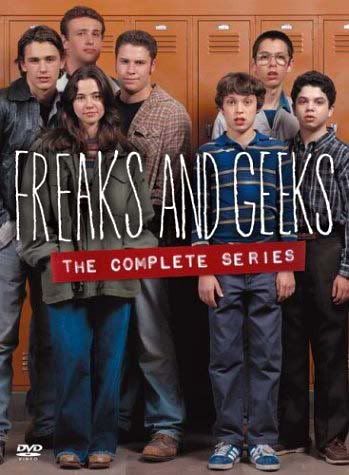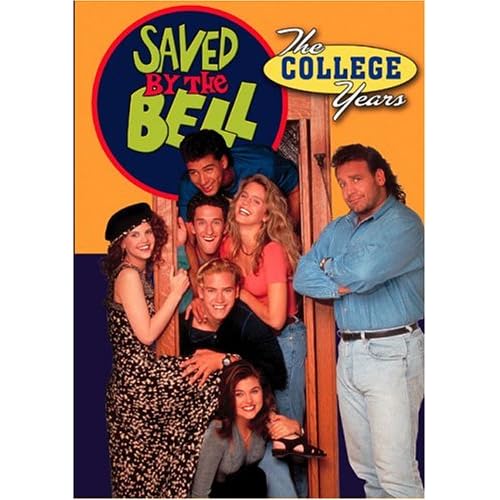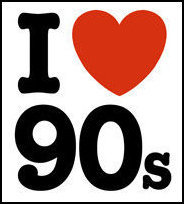
America's occasionally lazy film industry has a dirty little secret. It's called the French film industry. Throughout the 80s and 90s in particular, American filmmakers seemingly mined the French cinema for well-received gems and hastily brought these movies stateside in American reproductions. It works in some cases better than others, but usually the strength of a Hollywood budget and blissfully ignorant American audiences pulls through and delivers a hit.
Anyway, 1978's Les Cage aux Foilles--the French movie upon which The Birdcage was based--was itself based on an eponymous play, so it's a bit of a strangled route to copycat-ism. Following the release of the French movie was an American musical, so it's safe to say the well-tread plot of The Birdcage was fair game by the time the American movie version came out in 1996. It was practically a cornerstone of the public domain.
In the big picture, the actual plot of the movie is practically superfluous. The movie hinges on the strength of the hilarious performances, a credit to the great casting choices for the 1996 film. From the principals to the bit parts, it's no wonder the ensemble was awarded a Screen Actors' guild award for outstanding cast performance. It's totally and unself-consciously campy and over the top, but it's hard to imagine it any other way. I mean, what kind of drag queen is subdued and demure? They'd just be a drag commoner.
The movie, in all its incarnations, treads on delicate territory. In making a comedy that lampoons gay and drag culture, how can you still allow it some dignity and respect? It seems almost like an oxymoron (kind of like "subdued drag queen"). It's a careful balance between making the characters too cartoony or too spoon-gaggingly sentimental. On one hand, you want the audience to like them, but on the other, they need to make them laugh. Preferably with them rather than at them, but for the sake of comedy at times, either will do.
Luckily this movie pokes just as much fun at the straight man, but which I not only mean the heterosexual man but the FOX News-watching, Rush Limbaugh-consuming comedic foils who play a major role in setting up the plot. It's okay to laugh at people if you laugh at both sides. It says, see how both the campy drag-show director and right-wing politician can be ridiculous? And we say, Ah, yes. So we do.
The movie opens on gay cabaret owner Armand Goldman (Robin Williams) and his partner Albert (Nathan Lane). Albert is the club's star drag queen, performing as the diva-like Starina in the musical revues. Albert is something of a drama queen, and the littlest things put him to pieces. The two live with their flamboyant but domestically clueless houseboy Agador Spartacus (a brilliant Hank Azaria), who helps ease Albert's nerves with Pirin pills, which are really nothing more than aspirins with the "as" scratched off.
I love you, Hank Azaria. Especially since you admitted that accent is inspired by your Sephardic Jewish Grandmother
Armand's son Val returns from college with a major surprise: he is planning on getting married. At only 20, it would seem this would be the whole surprise, but Val's choice of mate throws even more of a wrench into the mix: his fiancee Barbara (Calista Flockhart) is the daughter of a prominent conservative senator who co-chairs the Coalition for the Moral Order. If that's not a great movie set-up, I don't know what is.
Barbara's parents are also less than thrilled with the news of their young daughter's impending nuptials, but are quickly swept into scandal when her senator father Kevin Keeley's (Gene Hackman) Coalition for Moral Order cohort is found dead in the bed of an underage black prostitute. This, you can imagine, was not exactly the image of moral order they were going for. "Your money's on the dresser, chocolate" aren't exactly the famous last words they might have hoped for. Kevin's wife Louis (Dianne Wiest) thinks a grand society wedding might be just the thing to put the whole debacle behind them and restore Senator Keeley's wholesome family image.
What the Keeleys may not have bargained for, though, was their daughter's marrying into an unconventional gay Jewish family residing in homosexual hotspot South Beach, which Barbara helpfully describes as "about two minutes from Fisher Island, where Jeb Bush lives". She also manages to slip in that Armand is a cultural attache to Greece, his mate a housewife, and that their last name is the more goyishly-neutral "Coleman". Quite a pickle, indeed.
Val pushes his father to play it straight, but the ever-hysterical Albert makes this a seeming impossibility. They consider having Albert play the role of a visiting uncle, but based on the clip below, his straight man act leaves just a little something to be desired:
The couple scraps their current interior design niche, trading their Florida-friendly pastels and leaf murals for more subtle giant crucifixes. Armand employs Val's real mother, whom Val has never met, to play the role of his wife at their little dinner party charade, but Albert's whining combined with horrible traffic foil the plan. Unaware of the traffic, the gang launches into an Albert-free dinner party complete with a shoe-wearing Agador Spartacus:
Val's mother Katherine still absent, Albert appears in an eerily Margaret Thatcher-esque full drag get-up, playing the role of doting WASPy housewife, much to the horror of all those in on it. Senator Keeley, however, is quite taken with who he believes to be Mrs. Coleman. When Katherine shows up, though, the jig is up, and Albert reveals himself as a man through the art of de-wigging. At this point Senator Keeley launches into some wigging of his own, lamenting the couple's Judaism as much as their same-sex partnership.
Determined to storm out of there, the Keeleys face a setback when they realize the dirty politics-hungry paparazzi has followed them to Armand and Albert's house. After a few touching moments of heartfelt apologies from the kids about launching this insane plot, Albert hatches a brilliant plan to get the Keeleys out of there without being discovered. The whole crew gets dolled up in drag makeup, wigs, and wardrobe and perform in the "Goldman Girls" number "We are Family". It might sound a little hokey, but it's pretty hilarious.
The movie is jam-packed with zingers and hilarious one-liners that you are pretty much contractually obligated to quote after watching. If you're not quoting inane lines like "You know what they say, where there's sand" and "Are you afraid of my Guuuatamalanness?" at least twenty times after a viewing, you're watching it wrong.
The whole thing pretty much makes you want to do an eclectic celebration of the dance. To do Fosse, Fosse, Fosse! Followed by Martha Graham, Martha Graham! With a little Twyla, Twyla, Twyla! Or maybe a little Michael Kidd, Michael Kidd. And a little Madonna, Madonna! But you keep it all inside. Albert and Armond, though, they'll draw it out of you, and before you know it you'll be wanting to join the gang onstage for a little "We are Fa-mi-ly" action whether or not you've seen a drag act a day in your life.*
*By the way, if you have no idea what I'm talking about in this closing paragraph, I recommend you go watch the movie, stat. At least watch the above trailer. It'll do you good.





